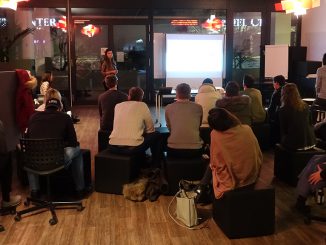
In this interview, Manuel Mundl explains why the digital age requires new sales approaches and concepts, highlights areas where companies have ground to make up in terms of digital sales innovation, and underscores why this topic is so important. As course director, he shares his expertise in (digital) sales and sales management on the Customer Experience Sales Expert course, aimed at sales managers. The next start date for the course is March 10, 2022.
MBS Insights: Mr. Mundl, you lead the Customer Experience Sales Expert course at Munich Business School. Why do you think the digital age requires new sales approaches and concepts, and what are the hallmarks of a modern sales professional nowadays?
Manuel Mundl: It’s because customers have changed a great deal in the digital world. They can access all kinds of information about products, competitors, companies and so on at any time. They’re connected to every other person all around the world in real time and can communicate with them at the click of a mouse. Customers expect to be offered a real experience throughout the entire purchasing process. Today, the classic salesperson only comes into contact with modern customers at the end of the sales process, long after the customer has actually made their decision. As a result, sales managers are only required to process orders. Modern sales approaches therefore need to give customers holistic, long-term support and offer outstanding experiences that provide added value. People working in sales should know how the customer journey works, where their so-called touchpoints are with customers, and how to utilize them effectively. It’s also important to have sound knowledge of your customers and their industries; this gives you an intimate understanding of your customers and allows you to identify what has stopped them from reaching their goals to date – and how you can help them do just that. We use a whole host of practical examples, case studies and role-playing exercises in our course to explore all these areas in detail. This means there’s nothing to stop participants from picking up these skills.
MBS Insights: What resources and techniques can sales managers use to achieve their goal of implementing modern, digital sales practices?
Manuel Mundl: There’s a multitude of useful tools and digital resources available – too many to list here, for sure –growing in number every day. Of course, all of these tools will be new to sales professionals to begin with. Ultimately, though, the goal isn’t to master every single tool, it’s to define the customer experience for the individual company and use suitable tools with the highest possible level of automation to make the customer experience as efficient as possible. We explore such tools at various points during the course and, time after time, students tell us this is particularly valuable to them.
MBS Insights: Why do you think many companies lag behind on this topic and how can they counteract this?
Manuel Mundl: A very good question – and not an easy one to answer, either. I still notice significant discrepancies between different companies. Some are very advanced in terms of their digitalization and have effectively become pioneers, while others lag far behind. It is true that the companies trailing behind have defined approaches and digitalization projects, but these often come to nothing or fail to really take off. The reason behind this, I think, is a combination of skills shortages and a lack of willingness to change. In addition, these companies often have a culture that does not allow mistakes. By contrast, the methods and tools available to use in the age of digitalization allow us to quickly try something out, swiftly identify whether it is a success or a failure, and then make rapid adjustments. But I think we need to start from a lower hierarchical level to tackle this. In the first instance, the challenge lies in teaching employees – across all hierarchical levels – how to use and apply the tools and methods. This will remove any reservations and help to establish a new type of culture that permits and promotes change.
MBS Insights: Where do you see the most significant deficits for managers and/or salespeople today?
Manuel Mundl: There are deficits across the board. On the one hand, there are classic sales methods such as questioning techniques, building a value proposition, storytelling, the psychology of persuasion and so on that are still unknown to many salespeople – or rather, are known but not used because there simply isn’t ongoing training about them. However, once these changes have generated unprecedented momentum, it’s absolutely essential to always stay on the ball through continuous and lifelong learning. On the other hand, it’s vital to use methods for planning and establishing customer experience management and customer journey management, along with the important KPIs in the digital world.
MBS Insights: What exactly does digital innovation involve in the context of sales?
Manuel Mundl: It’s all about introducing something new by applying a new technology or methodology that is digital and mapped out in IT systems. This means that IT is the basis of digital innovations. We address this on our Customer Experience Sales Expert course by looking at topics such as cloud computing, artificial intelligence and big data, and their effects on sales, drawing on a number of practical examples.
MBS Insights: What do you consider examples of best practices?
Manuel Mundl: There are a lot of examples. Everyone on the course works on their own sales-related digitalization cases across the individual modules. These range from introducing a chatbot tool to qualifying leads and opportunities through to gearing an entire company towards the customer journey based on various customer touchpoints. It’s particularly interesting that most participants take their work, or at least the results of their work, with them back to their companies, where an entire department – and in some cases even management – might then work on that case. This generates momentum, which makes a substantial difference and can give a company a major push forward in terms of digitalization.



